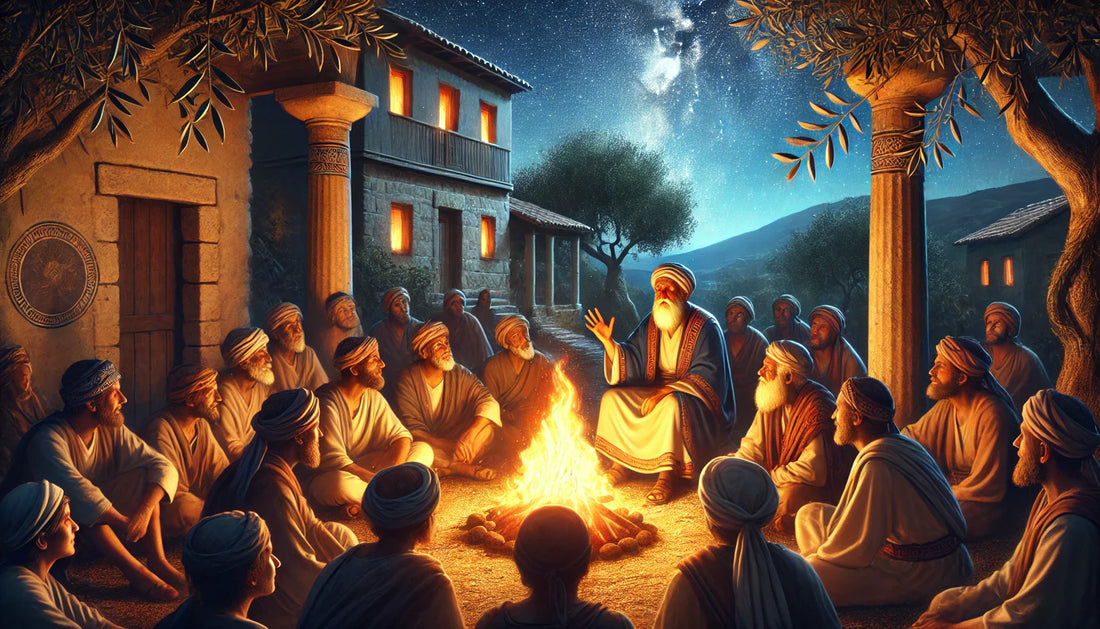
Eternal Insights from the Hydra's Defeat at Lerna
It complements the story of the Lernaean Hydra.
Who has never wished for a superpower? Whether to improve day-to-day life or to achieve a long-cherished goal, our imagination sketches how different reality would be if we could use that power at will.
Why are superhero stories so successful? Why are we so fascinated by magic? We know they are fantasies; illusions of what does not exist in the real world. Elements that perhaps belong to a more elegant universe than the one we actually live in.
The story of the Lernaean Hydra reveals one of these powers. A power that any living being would desire to possess. With each wound, each injury, the body becomes stronger. Would you fear anything if this were the case? Knowing that physical pain would be rewarded in the face of any adversity, what could stop you?
Hercules' second labour tells us of nothing less than heroic deeds. And, as it could not be otherwise, they are also laden with morality. Lessons to open the eyes of mortals like you and me, because if we believe that magic does not exist in this universe, we will see that it is very close.
Antifragility: The Invisible Power of Organisms
From an early age, we quickly learn the concept of fragility. In fact, we ourselves, without realising it, are absolutely fragile. We begin to interact with the world by breaking objects or toys, while our parents keep an eye on us so that nothing happens to us.
As we grow and gain strength and resilience, we gradually abandon this fragility. Although the majority of people think that the opposite of fragile is robust or resilient, it must be said that it is not exactly so. We agree that a resilient object is not fragile. An easy example is iron. We know that iron is not fragile; it is difficult to break and even to shape. To do so, we need tools and fire to master it at will.
The concept of fragility can be understood as an axis with two extremes and a journey. At one end is fragility. As you move along the imaginary line, you pass through resistant and robust until you reach the other extreme: antifragile.
Antifragile is not a common concept because you will not find any physical element in this world that has this property. No simple body is antifragile. Only complex bodies, organisms, are capable of developing this property. And the ultimate example of this property is the imaginary creature at the centre of our story: the Lernaean Hydra.
The Hydra is, indeed, very antifragile. For every head that is cut off, two new ones grow. Every time an attempt is made to damage it, it becomes more resistant. It is exactly the opposite of what we call fragile. Such a power only exists in tales, legends, and fantastic stories, right? False!
It is true that there is no organism in this world that has such magnificent and fast regenerative capacity. It is the desire of every living being and one of the coveted effects of any alchemist who has ever sought the famous philosopher's stone. Nevertheless, nature is full of antifragility, and it is one of the keys that separates simple bodies from complex ones.
Who has not heard of the progressive resistance to antibiotics (microorganisms), the regrowth of a tree (flora), or the new tentacle of an octopus bitten by a shark (fauna)? And we, humans, can give two quite evident examples:
Human muscle-building, technically known as hypertrophy, consists of breaking muscle fibres to make the body react and achieve, as a result, muscle growth. In other words, injuring the muscles to make them stronger.
And what is, if not antifragile, the human body's immune system? After a viral infection, we need time to heal. Very often we use remedies to accelerate this process. Once the damage is overcome, however, the body becomes immune to that infection thanks to the process of immunological memory. We become stronger.
Although we cannot regenerate with the complexity and speed of the Hydra, we cannot underestimate in any way the biological marvel of our body. We are antifragile by definition, like any living being, and we can accentuate it by taking care of our health.
Finally, as intelligent beings who understand the concept of antifragility, we can apply its principles to find the moral of the story. Only by identifying our weaknesses will we be able to transform them so that they serve us positively. Thus, when the chance of misfortune comes, only those who have prepared will emerge strengthened instead of harmed.
Synergy: The Resulting Power
It has been said many times, but it is something that must be engraved in the mind. If humans are the species that dominate planet Earth, it is not because we have developed our brains more than any other species. Is it a relevant factor? Undoubtedly! However, what made us a formidable species was our associative capacity.
It is not that humans are the only beings that collaborate. Every living organism is the fruit of the collaboration of its parts. And in the animal world, we can see how various species form communities (ants, bees, or mammals). While all these do so as an instinctive result, an evolutionary outcome etched into their genetic material, humans have transcended it thanks to cognition. Thus, a synergistic result has been achieved.
Synergy is defined as the collaboration of various parts or actions to accomplish a specific function. Despite everything, it is a term originating from Greek philosophy, where it holds an even more powerful value: "The whole is more important than the sum of its parts." In other words, the achieved result has a multiplicative effect, not an additive one.
And returning to the story of the Lernaean Hydra, it is well reflected how, indeed, the power of the associative capacity between Hercules and his nephew Iolaus is more potent than the most antifragile creature in the world. An attack tactic borne of human creativity, combined with the coordinated actions of the two, achieves victory.
As time passes, we are experiencing a trend that is making society increasingly individualistic. It is a legitimate thought, but we cannot forget our origins. We are social beings from our beginnings. Alone we will not go as far or be as strong, nor ever as intelligent as in a team. In all the difficult situations of life, being part of a good team – whether a partner, family, friends, or work – is indispensable for overcoming any obstacle that presents itself. Even to vanquish mythological beings that may seem indestructible.
If we started the article talking about powers and superheroes, we are ending it the same way. And the fact is that, no matter how strong and powerful our favourite fictional characters may be, they have always ended up needing a friendly collaboration to defeat their worst enemies. Whether by their side, or as a good Japanese series illustrates, with the fusion of their bodies.
Unity makes strength!
Reading list
- Nicholas Taleb, N. (2012). Antifragile: Things That Gain from Disorder. Penguin Books
- Harari, Y. (2016) Sapiens. A Brief History of Humankind. Edicions 62


